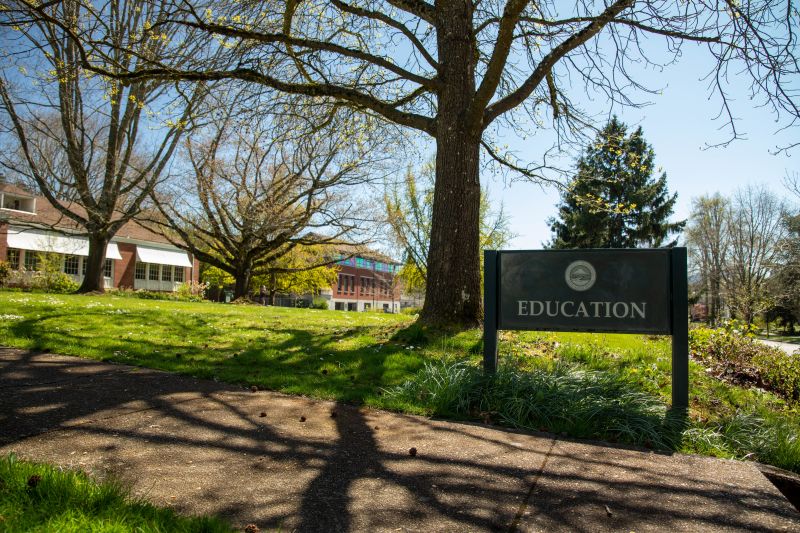
SSET’s projects advance the field of secondary special education through rigorous research, technical assistance, and cross-agency collaboration. Current work includes examining post-school outcomes, refining workforce readiness curriculum for justice-involved youth, and strengthening re-entry services through professional development for correctional and treatment staff.
These initiatives reflect SSET’s commitment to generating evidence-based knowledge and implementing research-driven practices that improve employment, education, and community living outcomes for transition-age youth with disabilities.
Transition Planning for Students with Disabilities
Situated through the lens of transition-focused education and data-informed decision making, this state contract provides training and coaching supports to the state-and local educational agencies in evidence-based practices for transition planning, services, supports, instruction, and predictors of postschool success to help improve outcomes for youth and young adults with disabilities.
Team Members: Charlotte Alverson
For more information contact Charlotte Alverson at calverso@uoregon.edu; 541.346.1390
Experiences of Students with Disabilities in Career and Technical Education Study
This study explores the Career and Technical Education (CTE) experiences of students with disabilities in Oregon. We are using historical CTE and post-school outcome data to determine whether enrolling in CTE increases the probability of students with disabilities achieving a positive post-school outcome (i.e., engaged as defined by Indicator B14 Post-School Outcomes).
Oregon Post-School Outcomes
This contract supports the secondary transition efforts of the Oregon Department of Education. SSET staff maintain the TransitionOregon.org website by working with a developer to ensure access, security, and functionality; updating website structures; verifying content accuracy, accessibility compliance (reformatting when necessary), and legal distribution criteria; disseminating and tracking use through Google Analytics.
We provide in-person/live technical assistance and training for Indicator B14 Post-School Outcomes data collection for the Exit and Follow-Up Interviews to 163 local school districts, and create a variety of training and support resources, including detailed step-by-step training documents, 1-page quick access documents, and just-in-time videos. We coordinate with a program developer to update and maintain an efficient on-line and mobile application for collecting valid and reliable PSO data. We analyze B14 data to determine response rate, representation, non-response bias, engagement outcomes, and reasons for not engaged; and draft the Indicator B14State Performance Plan and Annual Performance Report for review and finalization by the department. Applying a data-informed decision-making process, we provide consultation and facilitation services to support use of post-school outcome data, improve transition programming, and implementation of the predictors of post-school success to increase the likelihood of students’ achieving positive post-school outcomes.
We have coordinated, organized, and formatted the Transition Resource Handbook, and analyzed B13 Compliant Transition Components of the IEP data.
Team Members: Charlotte Alverson, Jesse Berkey, Jackie Burr, Cindy Post
For more information contact Charlotte Alverson at calverso@uoregon.edu; 541.346.1390
Ready to Work: Community (RtW:C)
The goal of this project is to develop and refine an employability social skills curriculum for justice-involved youth with disabilities served in community-based juvenile services programs. Using a Participatory Action Research approach, the project engages stakeholders—including educators, juvenile justice personnel, vocational rehabilitation professionals, workforce developers, and youth themselves—through structured interviews, focus groups, and design team meetings. These activities identify barriers to employment, inform curriculum revisions, and guide the integration of authentic work-based learning opportunities. The project will proceed through iterative development and pilot testing across 30 community corrections sites, with the goal of producing a flexible, evidence-based intervention that improves employment-related social skills, career self-efficacy, and long-term vocational outcomes for marginalized youth.
Team members: Deanne Unruh, Kyle Reardon and Jody Slocumb
Funding Source: National Institute of Disability Independent Living and Rehabilitation Research Grant #: 90IFDV0039-01-00
Re-entry Services Technical Assistance for Correctional facilities, hospitals, and treatment center staff.
The purpose of this project is to...
Team Members: Deanne Unruh & Joyce Douglas
Funding source: Oregon Department of Education
Project THRIVE: Employer Training for Hiring, Retaining, and Inclusively Valuing Employees with Disabilities
Project THRIVE addresses employment barriers faced by transition-age youth and young adults with disabilities (18+) by identifying employer-side challenges to hiring, retention, and advancement. Grounded in a Participatory Action Research approach and building on prior survey research, the project conducts semi-structured interviews and focus groups with employers, employed young adults with disabilities, workforce and rehabilitation professionals, and transition service providers. Insights from these stakeholder perspectives inform the development of targeted employer training modules. The primary outcome is a defined set of training content areas that will guide future module development and pilot testing, supporting broader efforts to improve disability-inclusive employment practices.
Oregon Statewide Transition Conference (OSTC)
SSET staff coordinate the annual Oregon Statewide Transition Conference in collaboration with the Executive Steering Committee. Held annually in late winter/early spring (February/March), the 1.5-day conference provides current and relevant information on a variety of special education and secondary transition related topics. Presenters include individuals with lived experiences, local practitioners, local and state agency personnel, and national experts. It's typical audience of approximately 500 attendees includes educators, vocational rehabilitation professionals, service providers, and parents. Vendors provide a wide range of resources and services designed to support success for individuals experiencing disabilities.
Team Members: Charlotte Alverson and Jesse Berkey
For more information, contact Jesse Berkey at Jberkey@uoregon.edu and visit https://transitionoregon.org/oregon-state-transition-conference-ostc/
